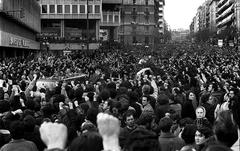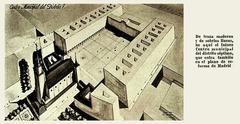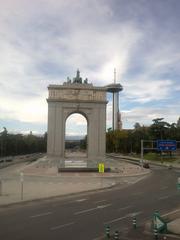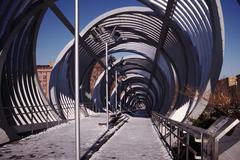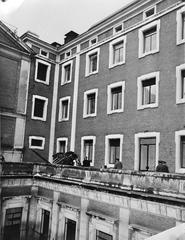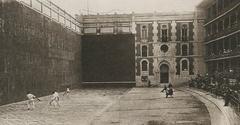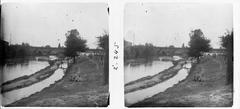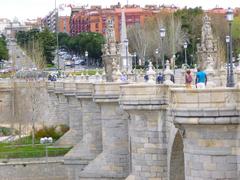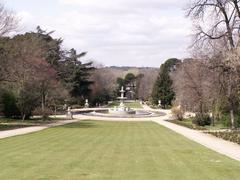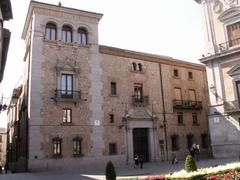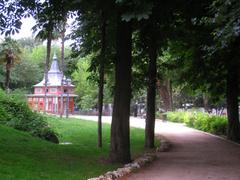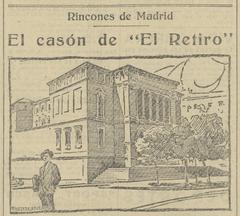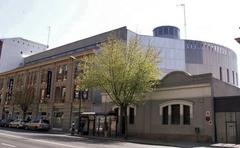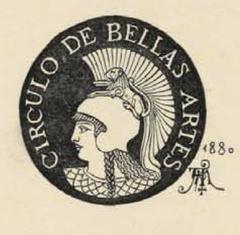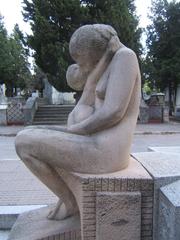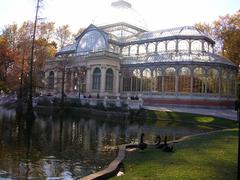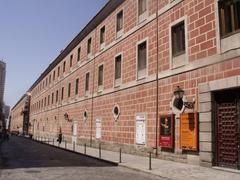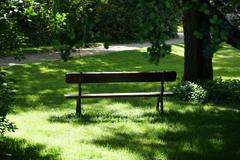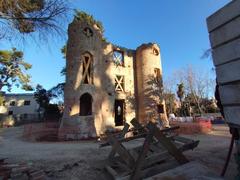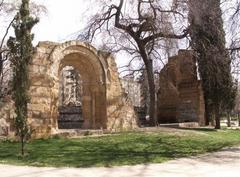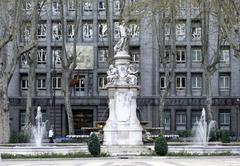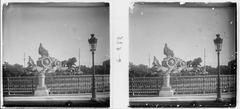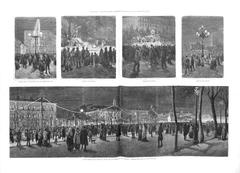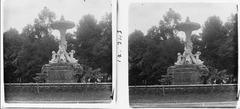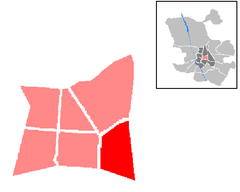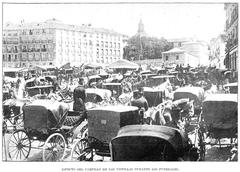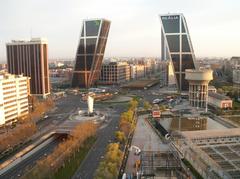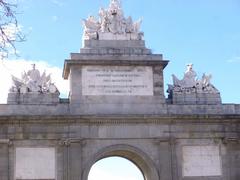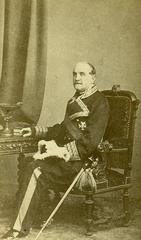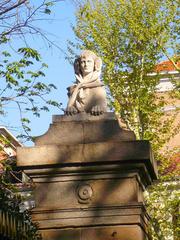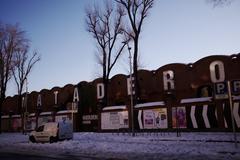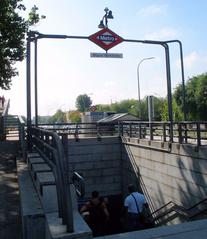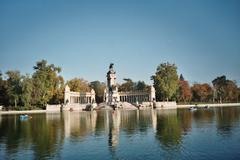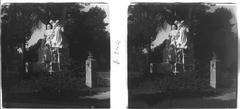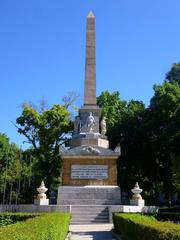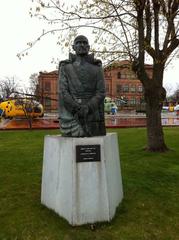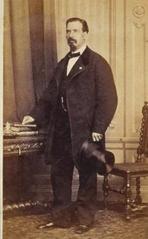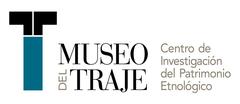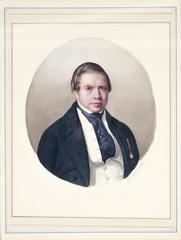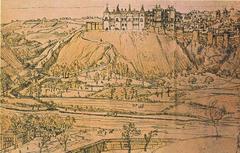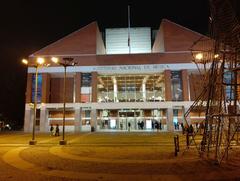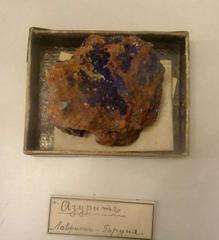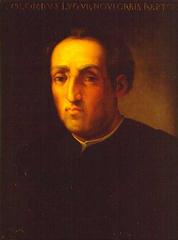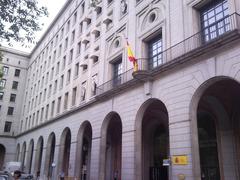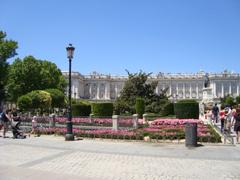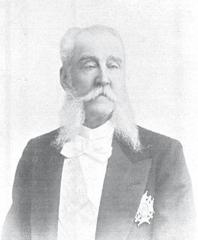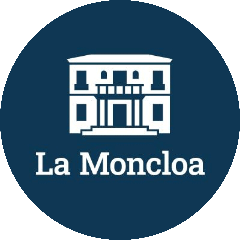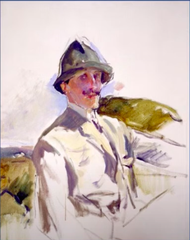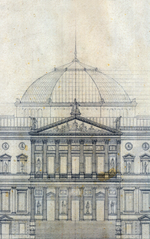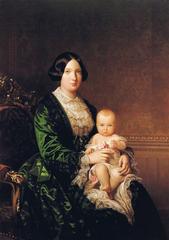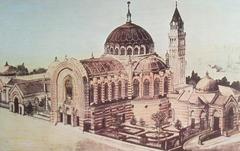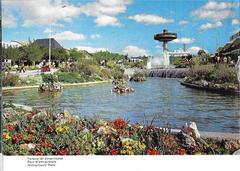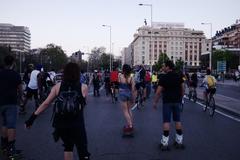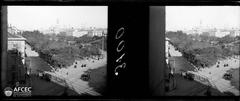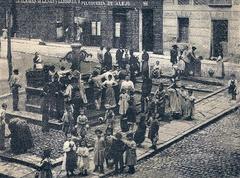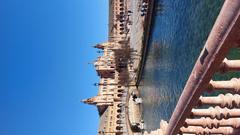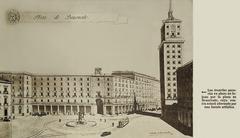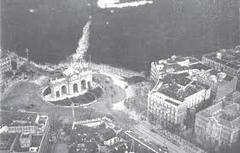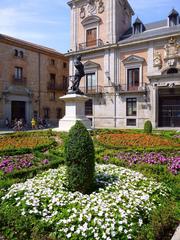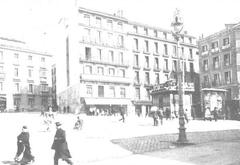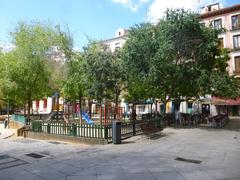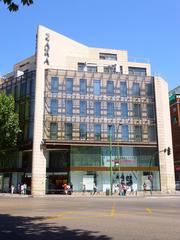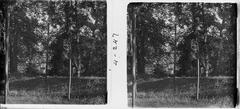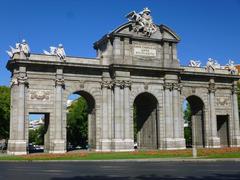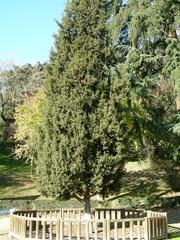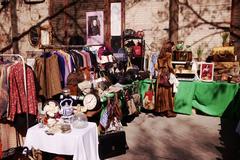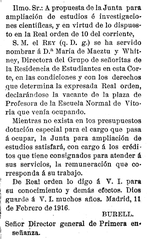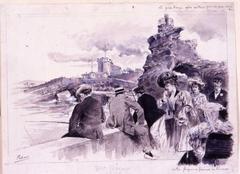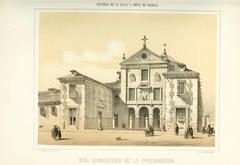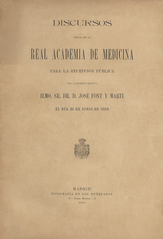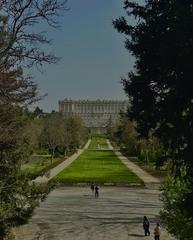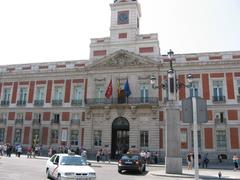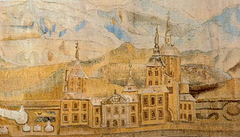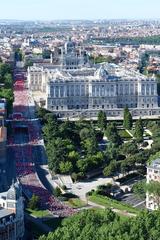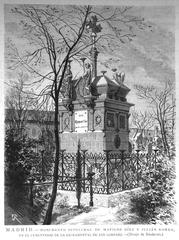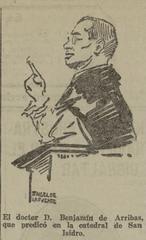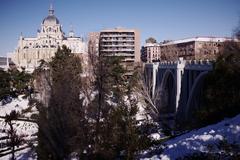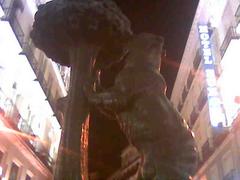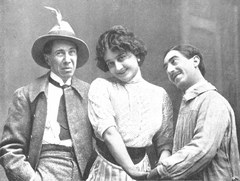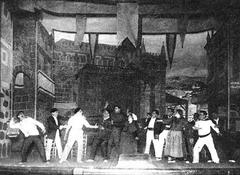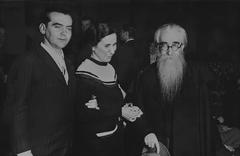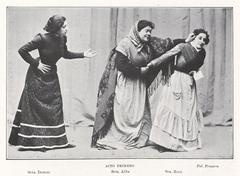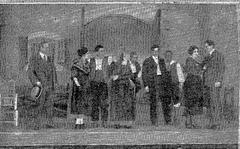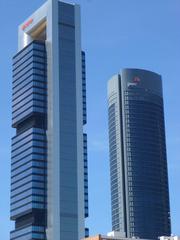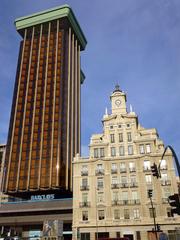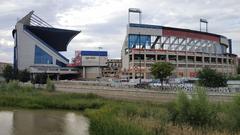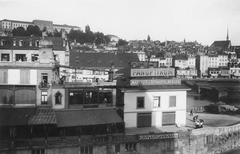
National University of Distance Education (UNED) Madrid Visiting Guide: Tickets, Hours, and Tips
Date: 03/07/2025
Introduction: UNED Madrid’s Historical and Educational Significance
The National University of Distance Education (UNED) in Madrid is a cornerstone of Spain’s educational landscape. Established in 1972 with the mission to democratize higher education, UNED pioneered a flexible, distance-learning model that has since evolved into one of Europe’s largest and most respected public universities. With over 260,000 students enrolled annually and a growing international presence, UNED offers a dynamic blend of academic innovation, digital learning, and cultural enrichment.
Located in the lively Ciudad Universitaria district, UNED’s Madrid campus welcomes visitors to explore Spain’s commitment to accessible education and technological advancement. The campus features modernist architecture prioritizing inclusivity and functionality, and its facilities range from expansive libraries to event spaces that regularly host academic conferences, public lectures, and cultural exhibitions. UNED’s hybrid teaching methodology and international collaborations, such as its partnership with MIT on the UNX project, underscore its leadership in digital education. Recognition by UNESCO as a Chair in Distance Education since 1997 and a rich history of doctoral degrees further highlight its academic prestige.
This guide provides essential information for your visit, including campus locations, visiting hours, accessibility, and tips to enhance your experience. Whether your interests are academic, architectural, or cultural, UNED Madrid stands as a compelling destination for all visitors.
For current schedules and event details, visit the UNED Extensión Universitaria and UNED official website. For accessibility and transportation, consult the Madrid Accessible To You Guide.
Contents
- Introduction: Why Visit UNED Madrid?
- Historical Overview and Institutional Significance
- Main UNED Campuses and Locations in Madrid
- Senda del Rey Campus
- Las Rozas Campus
- Other Madrid Centers
- Visiting UNED Madrid: Practical Information
- Location and Access
- Visiting Hours
- Tickets and Entry
- Guided Tours
- Accessibility
- Campus Facilities and Highlights
- Educational Innovation and International Collaboration
- International Recognition and Academic Prestige
- Visitor Support and Accessibility Features
- Practical Tips for Visitors
- Nearby Attractions
- Frequently Asked Questions (FAQ)
- Integrating UNED Into Your Madrid Itinerary
- Conclusion and Resources
Why Visit UNED Madrid?
UNED’s main campus offers a unique perspective on Spain’s educational progress and digital learning innovation. Whether you are a prospective student, academic, or traveler interested in Madrid’s educational landmarks, the campus is a gateway to understanding Spain’s drive for inclusive and accessible higher education.
Historical Overview and Institutional Significance
UNED was established to make higher education accessible to all Spaniards, regardless of location or circumstance, through a flexible distance-learning approach. Influenced by the UK’s Open University, UNED developed a hybrid model combining correspondence, in-person sessions, and digital resources. Throughout its history, UNED has leveraged technological advances, evolving from radio and television broadcasts to a leader in online education with the largest selection of virtual courses in Spain. It is the only Spanish university directly administered by the national government, with 61 study centers in Spain and 14 internationally.
Main UNED Campuses and Centers in Madrid
Senda del Rey Campus
Located at Senda del Rey Walk, 7 and 9, 28040 Madrid, in Ciudad Universitaria, this is the main UNED headquarters. The campus is surrounded by other major universities and offers administrative offices, academic departments, and student support services, making it the heart of UNED’s operations (Uniscopio).
Las Rozas Campus
At Av. de Esparta, s/n, 28232 Las Rozas de Madrid, this campus specializes in technology and innovation, providing state-of-the-art facilities for engineering and scientific research (Uniscopio).
Other Madrid Centers
Associated Centers, such as the Madrid Sur Center, offer face-to-face academic support, summer courses, and additional resources for students throughout the Madrid metropolitan area (UNED Madrid Sur).
Visiting UNED Madrid: Practical Information
Location and Access
UNED’s main campus is easily accessible via Metro (Ciudad Universitaria, Line 6), buses, and taxis. The area is well-served by public transport, and the campus is close to major attractions. From Madrid-Barajas Airport, the campus can be reached in approximately 30–45 minutes by metro or taxi (esMadrid Practical Information).
Visiting Hours
- Administrative Offices: Monday–Thursday, 9:00 AM–2:00 PM and 4:00 PM–6:00 PM; Friday, 9:00 AM–2:00 PM.
- Library: Hours vary seasonally; check the UNED official website for current schedules.
- General Campus Access: Monday–Friday, 9:00 AM–6:00 PM. The campus is quieter during university holidays (August, late December).
Tickets and Entry
UNED is primarily an educational institution, and general campus access is free. Some events, lectures, or exhibitions may require advance registration or tickets—verify details via official channels.
Guided Tours
Regular guided tours are not offered, but group visits can be arranged during open days or summer course periods. For special event tours, contact UNED’s visitor services (UNED Summer Courses).
Accessibility
UNED’s Madrid campuses are equipped for visitors with disabilities, including step-free access, ramps, elevators, accessible restrooms, and tactile signage (Accessible Madrid). Face-to-face assistance is available at main centers.
Campus Facilities and Visitor Highlights
- Library and Study Areas: Open to visitors for research and quiet study.
- Cafeterias: Affordable dining options with accessible seating.
- Bookstore: Academic books and UNED merchandise.
- Event Spaces: Host to conferences, lectures, and cultural events.
- Modern Architecture: Blends contemporary design with landscaped green spaces, ideal for photography.
Educational Innovation and International Collaboration
UNED’s hybrid model combines distance learning with scheduled in-person sessions and extensive online resources. Its collaboration with MIT on the UNX project exemplifies leadership in digital education, particularly in entrepreneurship and app development in the Spanish-speaking world.
International Recognition and Academic Prestige
Holding the UNESCO Chair in Distance Education since 1997, UNED has awarded nearly 2,000 doctoral degrees over three decades and boasts a diverse, internationally connected alumni network.
Visitor Support and Accessibility Features
- Step-Free Access: Ramps, elevators, and accessible restrooms throughout campuses.
- Transport: Accessible metro (Ciudad Universitaria, Line 6), buses, and taxis.
- On-Campus Support: Multilingual information desks and assistance for international visitors.
- Digital Resources: Free Wi-Fi and mobile apps like TUR4ALL for real-time accessibility info (Accessible Madrid Guide).
Practical Tips for Visitors
- Getting There: Senda del Rey Walk, 7 and 9, 28040 Madrid. Accessible via Metro Line 6, buses, and taxis.
- Parking: Limited on-campus; accessible spaces available in nearby public lots.
- Amenities: Cafeterias, Wi-Fi, bookstores, and green spaces.
- Climate: Summers are hot—plan indoor activities during peak heat (Madrid Traveller).
- Language: Many staff speak English; signage is mostly Spanish.
- Safety: Campus is secure, but take standard precautions (Splendidly Spain).
Nearby Attractions
- Faro de Moncloa: 92-meter observation tower with panoramic city views (Travel Lemming).
- Parque del Oeste: Green park ideal for strolls or picnics.
- Temple of Debod: Ancient Egyptian temple relocated to Madrid.
- Museo de América: Museum showcasing art and history from the Americas.
Cafés and restaurants in the area provide ample options for dining and relaxation.
Frequently Asked Questions (FAQ)
Is there an entrance fee to visit UNED Madrid?
No, general campus access is free.
Are guided tours available?
Not regularly, but possible during open days and special events.
What are the best times to visit?
Weekdays during the academic year (September–June) for the liveliest campus atmosphere.
Is the campus accessible for visitors with disabilities?
Yes, including ramps, elevators, and accessible restrooms.
Are there photography opportunities?
Yes, especially around the main entrance and landscaped areas.
Integrating UNED Into Your Madrid Itinerary
Suggested Itinerary
- Morning: Explore UNED’s Ciudad Universitaria campus (1–2 hours).
- Late Morning: Visit Faro de Moncloa for city views.
- Afternoon: Head to central Madrid for historical sites like the Royal Palace or Prado Museum (Earth Trekkers).
- Evening: Dine in nearby Malasaña or Chamberí.
Combine your visit with other academic landmarks, such as Complutense University and the National Library of Spain, for a thematic educational tour.
Conclusion
A visit to UNED Madrid offers a distinctive opportunity to engage with Spain’s academic innovation and architectural modernism. Its open, accessible campuses, diverse events, and welcoming atmosphere make it an ideal addition to any Madrid itinerary. For up-to-date information on visiting hours, events, and campus facilities, consult the UNED official website and the Madrid Tourism Official Site. Download the Audiala app for guided tours and insider tips to enrich your visit.
Sources and Further Reading
- Discovering UNED Madrid: Your Complete Visitor Guide, 2025 (UNED Extensión Universitaria)
- Explore UNED Madrid: Campuses, Visiting Hours, Accessibility & Facilities, 2025 (UNED Official)
- Visiting UNED Madrid: Hours, Tickets, and How to Explore This Unique Educational Landmark, 2025 (UNED Official)
- Madrid Accessible To You Guide, 2025 (Accessible Madrid)
- Madrid Tourism Official Site, 2025 (Madrid Events Calendar)
- Travel Lemming Madrid Itinerary, 2025 (Travel Lemming)


